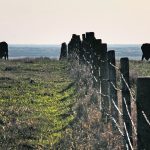Canada’s ambassador to Britain says retaliation carries risks that may prove more dangerous than beneficial
WINNIPEG — Canada should consider banning imports of United Kingdom beef if the U.K. abandons trade talks, says Canada’s main cattle producer organization. “If they’re going to continue to not have open dialogue and follow the science, we encourage our government to take beef completely off the table,” said Nathan Phinney, president of the Canadian […] Read moreTag Archives Nathan Phinney — page 2
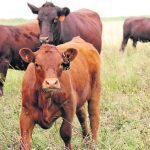
Feds called on to change disease outbreak policy
Producers think Ottawa should help pay for clean-up and disinfection after a federally reportable disease outbreak
REGINA — Cattle producers say the federal government should offer better compensation to those affected by reportable diseases. The Canadian Food Inspection Agency pays maximums of $4,500 per commercial animal and $10,000 for each registered animal when ordered destroyed, but nothing else. Saskatchewan Stock Growers Association members voted at their semi-annual meeting to lobby Ottawa […] Read more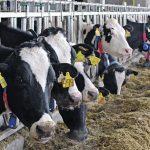
Methane emissions additive approved in Canada
Market authorization for livestock product comes after CFIA approves the product's main ingredient
A feed ingredient designed to reduce methane emissions in beef and dairy cattle has received market approval in Canada. Bovaer neutralizes methane in the rumen. When microbes in the rumen break down feed, hydrogen and carbon dioxide are released. These two gases are combined in the presence of an enyzme. Bovaer works by suppressing the […] Read more
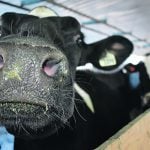
Gov’t looks for ways to cut cattle’s methane emissions
Ottawa is making $12 million available to help find ways to reduce methane emissions from cow-calf, dairy and feedlot operations. The Agricultural Methane Reduction Challenge is part of the federal government’s plan to reduce overall methane emissions 40 to 45 percent below 2005 levels by 2030 and to be net-zero by 2050. The challenge aims […] Read more
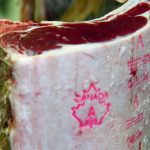
Delay U.K. entry to trade deal, say meat producers
CHARLOTTETOWN, P.E.I. — Canadian beef producers want the country’s food safety systems recognized in the United Kingdom before Britain is formally allowed to join the trans-Pacific trade deal known as CPTPP. Canadian Cattle Association president Nathan Phinney delivered that message to the North American, European Union Agricultural Conference in Charlottetown last week. He observed that […] Read more

N. American beef leaders urge disease vigilance
President of American industry group sounds alarm over what he says is Brazil’s non-compliance with BSE standards
The United States, Canada and Mexico must do more to protect the North American cattle herd from illnesses such as foot-and-mouth disease and BSE that threaten the continent’s multibillion-dollar beef sector, said an American industry leader. Brazil is demonstrating it is non-compliant with the BSE standards developed by the World Organization for Animal Health in […] Read more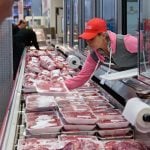
BLOG: A louder and prouder farm lobby?
Every year, I keep track of my favourite quotes from farmers and other folks in Canada’s ag industry. Summer is not over, but there’s a clear leader in the clubhouse for 2023. The quote comes from Nathan Phinney, president of the Canadian Cattle Association. This summer, Phinney spoke about the federal government allowing the United […] Read more
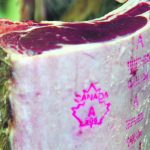
CCA pushes to exclude U.K. from CPTPP
The Canadian Pork Council, the Canadian Cattle Association and the Canadian Meat Council strongly oppose Britain joining the CPTPP. The stance is an unusual one for Canada's red meat sector, which normally supports open markets and free trade.
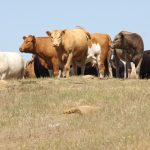
Dryness gets serious in cattle country
CCA president Nathan Phinney said most cattle in Canada are in Alberta and Saskatchewan “where it’s the driest and we’re used to dealing with some of these conditions, but it’s been back to back to back… so we’ve had to do a slight reduction in cow numbers, and feed inventories have dwindled down over the last couple of years of dryness, so it’s having a major effect with the surplus of feed available.”



